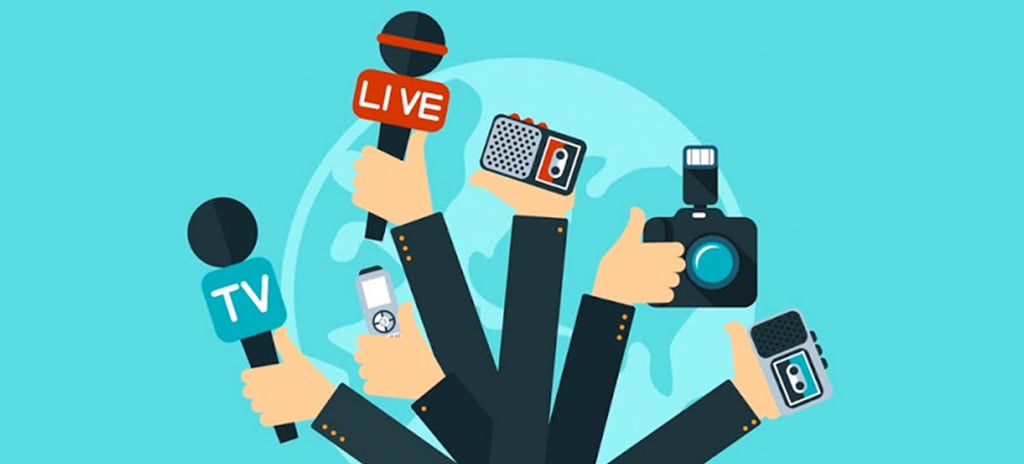Social justice movements have gained momentum in recent years, thanks to the rise of mass media communication. From newspapers and television to social media platforms, mass media plays a critical role in the success of social justice movements. In this blog post, we’ll explore how mass media influences social movements and the impact of social media on social justice actions. By the end of this post, you will have a better understanding of the role of mass media in social justice movements.
To Gain a More Well-Rounded Understanding: benedict cusack
How Mass Media Influences Social Movements
Mass media has a potent influence on people’s thoughts and actions, particularly in social justice movements that heavily depend on it for spreading their message and gaining support. This article delves into news coverage trends in this regard, the impact of mass media on causes, and reporting consequences for marginalized communities. It also discusses strategies for using social media to raise awareness and the importance of ethical journalism in promoting causes.
Undoubtedly, mass media is a crucial tool for disseminating information to a vast audience quickly and efficiently. Its capacity to cross boundaries makes it an ideal platform for sharing ideas that would otherwise not reach mainstream outlets or public awareness. However, while this technology can amplify the voices of underrepresented or ignored groups in news coverage, we must acknowledge that content is often influenced by privileged groups, such as political parties or institutions, who have vested interests in certain issues or causes being highlighted.
In recent years, social media platforms like Twitter and Facebook have become prevalent worldwide, offering users an easy way to share content and ideas. Social media creates novel opportunities for activism engagement, allowing people from diverse backgrounds to join conversations about issues they deeply resonate with without prior knowledge or exclusive affiliation to particular circles. Moreover, it provides marginalized groups, including minority communities, more control over which stories to share outside their networks, giving them more autonomy in advocating for their causes.
Social media plays a critical role in social justice movements by helping activists raise awareness, fostering solidarity among participants, and mobilizing collective action toward their goals. Studies show that engaging on these platforms creates a sense of community, fostering meaningful dialogue and enabling users to connect directly with key decision-makers, increasing participation beyond traditional advocacy efforts.
In conclusion, mass media communication is a powerful tool when used correctly, allowing us access to larger audiences beyond our immediate circles. It is important to use these channels responsibly, understanding our privilege and the power to influence public opinion without inadvertently creating false narratives. By leveraging these tools ethically, everyone can have an equal voice, regardless of where it comes from, ensuring that every voice counts within society.
See Also: The Power of Social Media in Mass Media Communication
Leveraging Media for Social Activists to Make Lasting Change
The role of mass media communication in social justice movements cannot be overstated. Social activists have leveraged the power of mass media to spread awareness and make calls for activism for decades. With the advent of new technology, activists have access to a wide range of platforms and outlets they can use to amplify their message and reach a broader audience.
It is important for activists to understand how to effectively utilize mass media communication to create lasting change. This means equipping them with the necessary tools and strategies needed to create successful campaigns that will engage their target audience emotionally and motivate them to take action.
When designing a campaign, activists must consider sustainability models that will ensure success long-term. Traditional forms of media such as broadcast television can still be very effective when used strategically. It is essential that these are also taken into account when creating a campaign plan.
Professional sports offer another avenue for advocating for social justice through mass media campaigns. Activists should investigate which platforms and sources are most effective before embarking on this type of advocacy work.
Understanding how mass media campaigns can shift public opinion by allowing previously marginalized views into mainstream conversations is key. Mass media also helps bridge gaps between different groups, thus helping social movements grow rapidly by tapping into wider networks.
Ultimately, strategic advocacy through mass media communication can have a powerful positive impact on society at large. Activists should assess their campaigns periodically to identify ways they can strengthen their message and expand their reach even further. With careful consideration and effort, true progressivism may finally be attained within our lifetimes.
The Impact of Social Media on Social Justice Action
The impact of social media on social justice action cannot be overstated. Social media has drastically changed the way people and organizations communicate, grow and gather support for causes, becoming a powerful tool for bringing awareness to issues and organizing movements – something traditional mass media has been unable to do effectively in the past.
Having traditional mass media outlets support social change efforts presents a major advantage as they have access to larger audiences than most grassroots organizations or activists can reach alone. Mass communication through television, radio, newspapers, and magazines allows advocates to spread their message far beyond what they could manage on their own, bringing more attention to pressing issues and creating dialogue between different groups.
Social media platforms such as Twitter, Instagram, YouTube and Facebook have facilitated dialogue, collaboration and communication between advocates for social justice across different countries. The use of language, hashtags (#socialjustice), imagery (#BlackLivesMatter) and other visual media communicates powerful messages across different platforms in a way that traditional mass media cannot match, especially when it comes to amplifying marginalized voices and portraying a more accurate narrative.
The power of collective action on social media should not be underestimated either; it has enabled individuals around the world to join forces to create meaningful change at a global level by sharing stories, experiences and information with each other quickly and easily without the resources or funding commonly needed when taking part in traditional activism efforts like marches or rallies.
Social media provides a platform for people from all walks of life who share similar values but may never meet face-to-face due to geography or distance barriers. This facilitates large scale participation where activists can spread their message effectively while gaining new allies along the way. It also amplifies the voices of marginalized groups who often don’t have access (or are excluded from) traditional forms of communication.
While technology has revolutionized how we connect with one another, it is important not to forget about its potential drawbacks as it can be used negatively to fuel hateful rhetoric. Despite these challenges, its power can’t be denied and when used responsibly, it enables us to reach beyond boundaries set by geography or nationality, ultimately providing an opportunity for real change at scale through our collective power.
How Social Media Helps Mobilize Communities for Change
Social media plays a critical role in mobilizing communities and supporting social justice movements. Mass media, digital content, and celebrity influence all contribute to capturing human stories to galvanize public opinion. Though Twitter mostly favors institutional opinion leaders, social media still allows individuals to share and advocate for causes. It provides a platform for people to connect, organize, and campaign for social justice without relying solely on traditional media. This interdependence between mass media communication and social movements is crucial to understanding how they shape each other’s goals and objectives. By using different forms of technology to access information and generate news, we can ensure key messages are loud enough to spark genuine conversations about social justice issues worldwide.
In Short
“The role of mass media communication in social justice movements is undeniable. Activists can spread their message to a much broader audience and create meaningful change by leveraging these tools ethically. Social media allows people from diverse backgrounds to join conversations about issues they deeply resonate with, without prior knowledge or exclusive affiliation to particular circles. It is important for activists to understand how to effectively utilize mass media communication responsibly and strategically to create successful campaigns that engage their target audience emotionally and motivate them to take action.”



